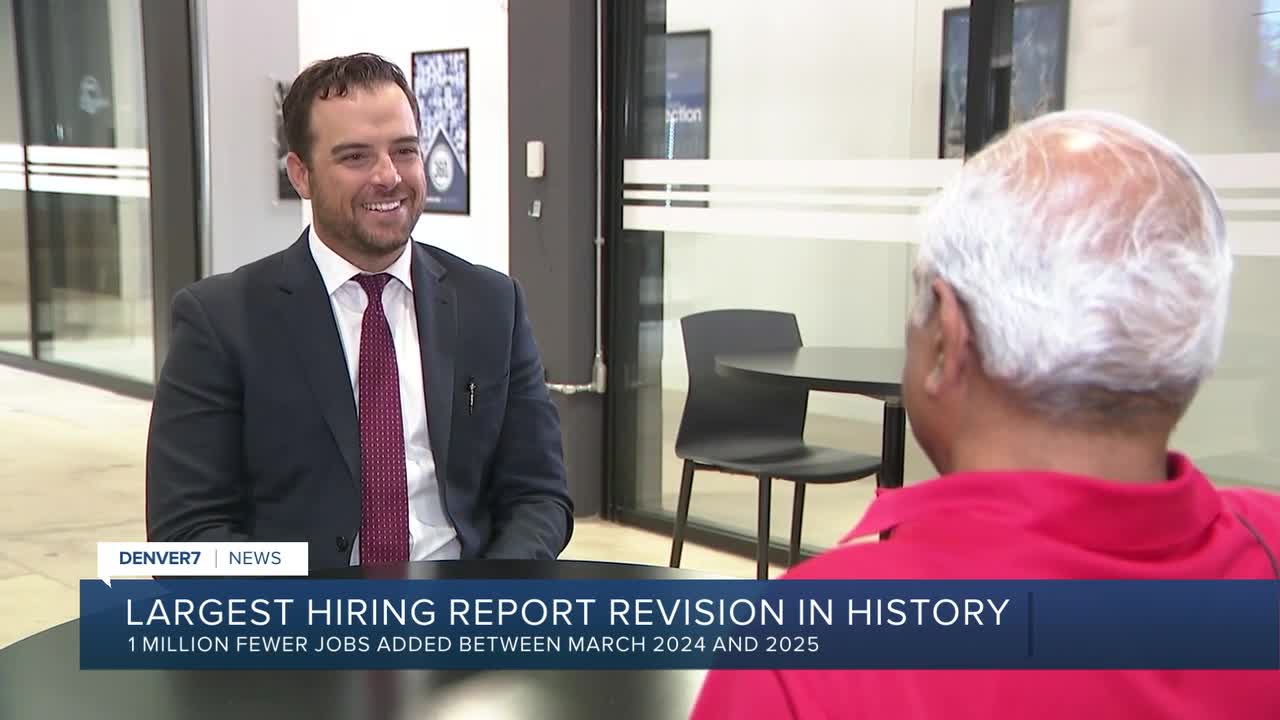DENVER — It continues to look like the Federal Reserve will lower interest rates in its monthly meeting next week.
That’s partly because of a revised hiring report released by the U.S. Bureau of Labor Statistics (BLS) on Tuesday showing employers added 911,000 fewer jobs between March 2024 and March 2025 than originally estimated.
It’s the largest revision ever for the agency.
These revisions come from BLS every year because the job data the agency releases monthly uses business surveys to give a nationwide estimate, while the revision comes from more complete tax data.
Metropolitan State University of Denver economic professor Kishore Kulkarni said the new report only adds more uncertainty to the economy’s outlook in the next few months, but it doesn’t necessarily concern him.
“I’m not majorly concerned about the economy because I don’t think these shocks [to the economy] are very bad,” Kulkarni said. “They are shocks- unprecedented by the revision on the jobs numbers- but they can be easily absorbed and that’s what the market is telling us.”
So how does that affect Coloradans?
The anticipated lower interest rates would help lower credit rates, potentially making monthly payments slightly lower on any outstanding debt. It could also boost consumer spending.
While good for the overall economy, the increase in spending could also add some more inflationary pressure so prices could rise a bit than they would otherwise.
Kulkarni adds this creates more questions surrounding current job numbers that come out each month, which have already been short of expectations.
President Trump ousted the now-former head of BLS, Erika McEntarfer, in August because of a weaker-than-expected jobs report. Trump claimed, without evidence, that the numbers were rigged to make him and other Republicans look bad.
Related coverage:
- BLS revises job numbers after overcounting 911,000 positions
- First jobs report since Trump fired agency head shows hiring slowdown
- Economic jitters keep workers in their jobs as openings decline





